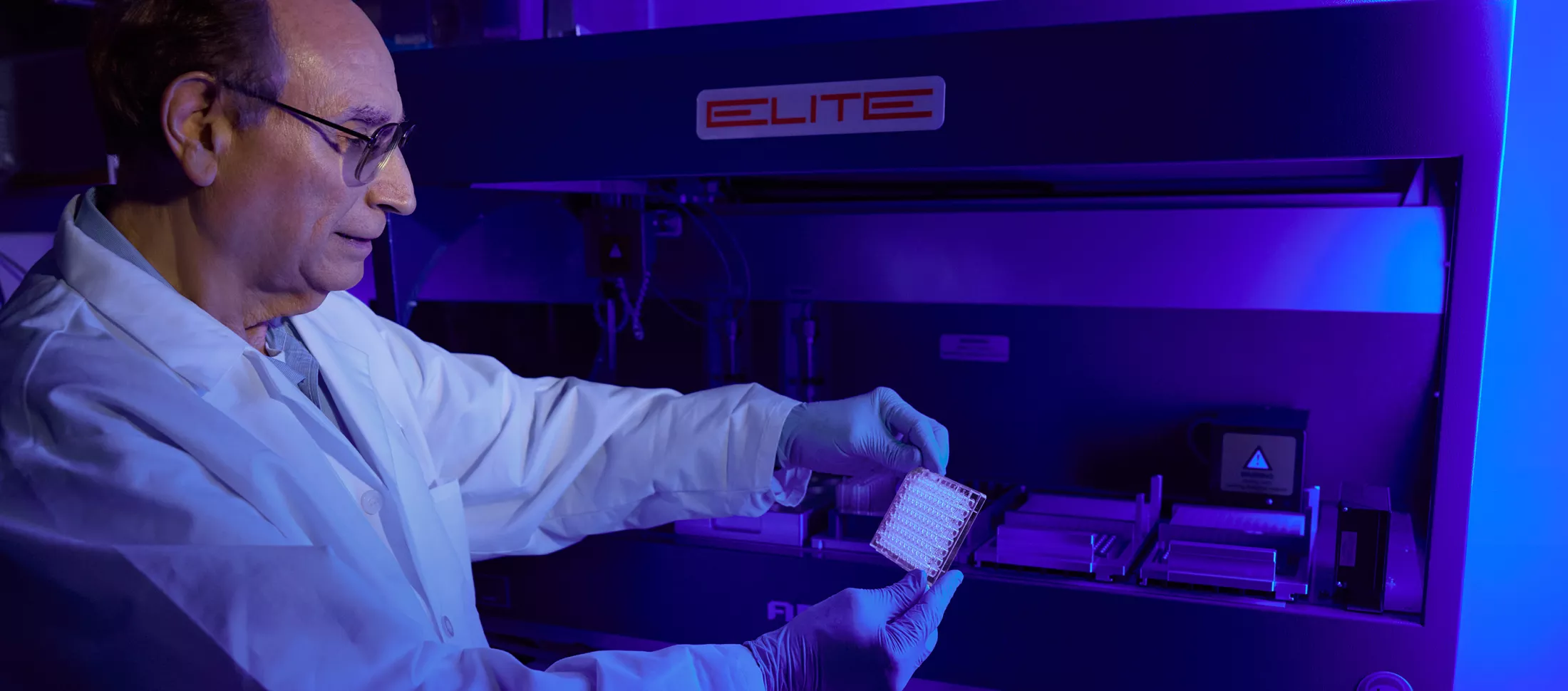Our Approach to Genetics Evaluation of Concerning Clinical Problems
A global leader and National Organization for Rare Disorders (NORD)-designated Rare Disease Center of Excellence, the New York Center for Rare Diseases (NYCRD) is an international referral site for all individuals with rare diseases and concerning clinical problems that have eluded diagnosis. One of the oldest and best-known programs in the nation, our Division of Pediatric Genetic Medicine has been leading the way in genetic and genomic disease care for more than 50 years, serving as a model for others to follow. Our multidisciplinary team of clinical geneticists and genetic counselors includes internationally recognized experts in metabolic diseases, dysmorphology, newborn screening, genetic disorders of blood and immunity, cancer genetics and medical genomics. Working collaboratively, they provide unparalleled expertise in evaluating and managing individuals with undiagnosed diseases.
Our elite team of specialists conducts comprehensive patient- and family-centered diagnostic evaluations to help find an accurate diagnosis and end the often prolonged diagnostic odyssey for patients and their families. These include reviewing records from referring physicians, obtaining detailed family history information, performing dysmorphology examinations and using the latest and most advanced biochemical, genetic and genomic diagnostic technologies and/or other testing. With an accurate genetic diagnosis, we are able to develop precision care plans, provide informed family planning and prognostic information, tailor treatments and identify options for advanced therapeutics to optimize patients’ health and quality of life. Following integrated analysis with state-of-the-art clinical genomic testing, patients who remain without a definitive diagnosis may be enrolled in the advanced diagnostics program at the NYCRD, where innovative research technologies and analytical methods, such as new genomic technologies and AI-enhanced phenotyping techniques only available through research studies, are applied to unlock the answers.
At the forefront of research, education and clinical care, we continue to advance the development of innovative tools and strategies to improve care and enhance the detection of rare diseases. We are spearheading initiatives and research funded in part by the National Institutes of Health to make genomics and high-quality care more accessible to all individuals with rare conditions and to improve diagnostic rates and care.

Advanced Diagnostics & Treatments
We offer equitable access to the latest and most advanced diagnostics and therapeutics to help prevent, earlier detect and treat all individuals with rare conditions. We have significant success in establishing an accurate diagnosis for undiagnosed individuals and complex cases that have previously eluded explanation. We continue to develop new tools to further improve diagnostic rates and the interpretation of variants of unknown or uncertain significance (VUS) and non-coding variants.
We use the latest diagnostics and genetic sequencing techniques to facilitate precision medicine treatment plans. These include massively parallel sequencing, transcriptomics profiles by RNA sequencing, functional and epigenetic approaches, such as DNA methylation profiles, metabolomics, proteomics, immunophenotyping, germline mutation and molecular cytogenetic techniques, array-based comparative genomic hybridization (CGH), enzyme assays, infectious disease screening tests, machine learning and AI algorithms, as well as advanced imaging technology.
To unlock the answers in patients with rare diseases who are still searching for a diagnosis when all other clinically available technologies have been exhausted, we offer access to new genomic technologies and AI-enhanced phenotyping techniques only available through research studies. We also offer research sequencing using long-read DNA and RNA sequencing technology, in partnership with GeneDx, PacBio and the Genomics team in Google Research, to help identify difficult-to-detect complex genetic alterations and the genetic causes and best treatments for rare diseases that have eluded diagnosis.
Depending on the diagnosis, we also offer access to newly emerging treatments utilizing advanced gene therapies, cellular and molecular technologies, AI platforms, laser technology and newly approved medications, including antisense oligonucleotides, monoclonal antibody, substrate reduction and enzyme replacement therapy, gene therapy and molecularly targeted therapeutics. If surgery is needed, our team of world-renowned surgeons offers the latest approaches, including robotic and minimally invasive surgery, whenever possible.
Find Rare Disease Services Locations for Genetics Evaluation of Concerning Clinical Problems
Division of Genetics, Children’s Hospital at Montefiore Einstein (CHAM)
Childhood Cancer Predisposition Program
Image courtesy Positive Exposure in collaboration with the Wilhelm Foundation.



